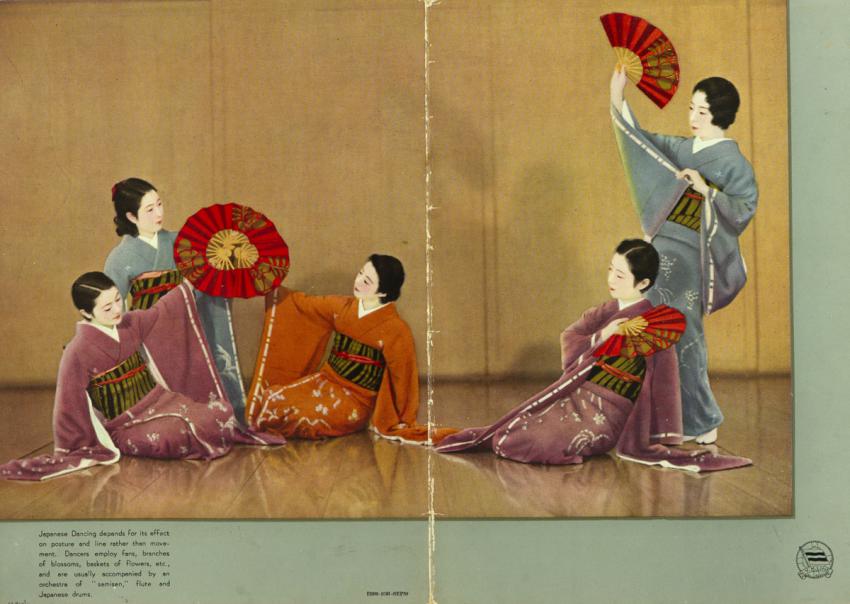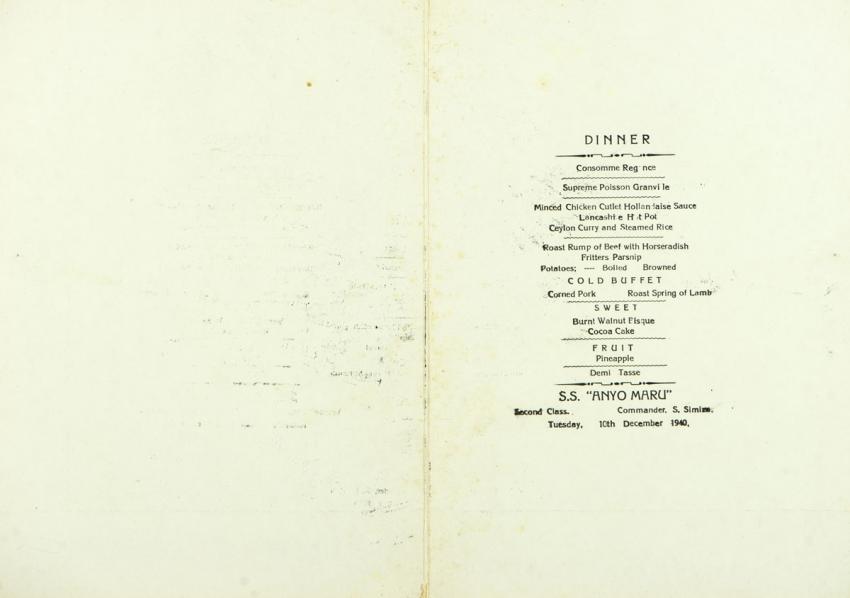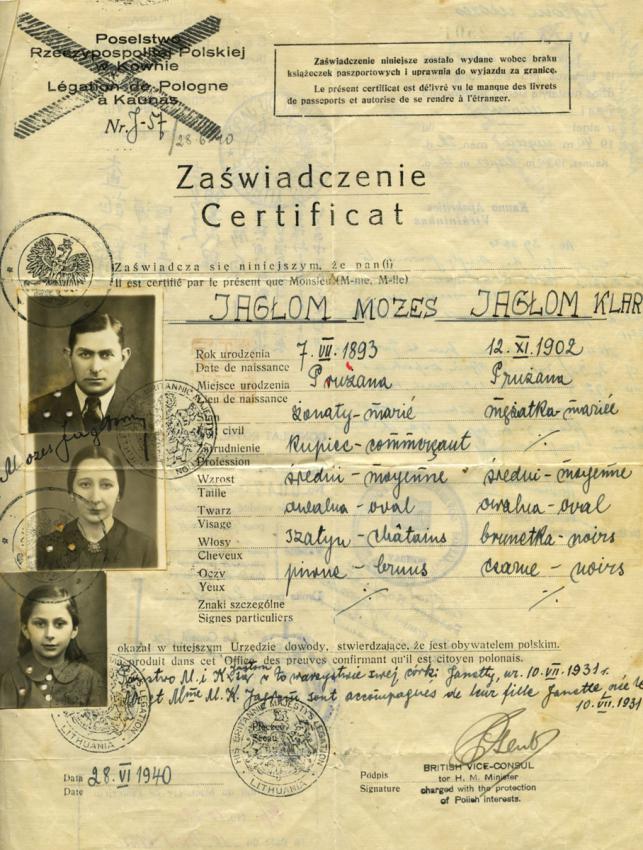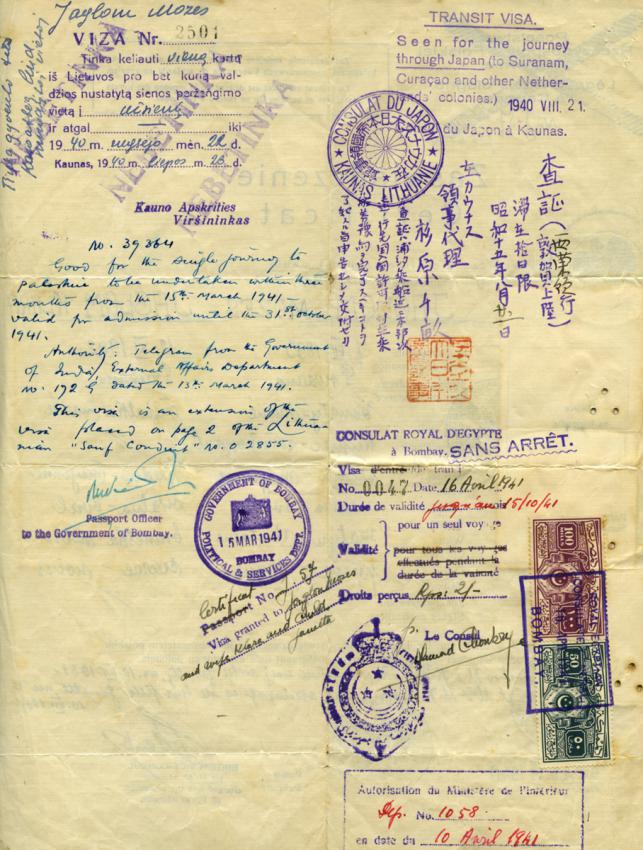Sugihara found himself unable to stand by in the face of the flood of Jewish refugees at the gates of the consulate who begged for assistance. He knew that granting the visas would cost him his post, and he was torn between his wish to help and the anticipated damage to his reputation and to his family's livelihood. On his return to Japan, Sugihara was fired from his position in the Japanese Foreign Ministry. Less than a year after the closing of the Japanese consulate in Kaunas, Lithuania was occupied by the Germans, and the fate of the Jews who remained was sealed.
In 1939, with the division of Poland between Germany and the Soviet Union, Mozes and Klara Jaglom from Brisk, found themselves under Soviet control and they decided to leave the city. They crossed into Lithuania with their nine-year-old daughter Jennet and came to Vilnius. A year later, in the fall of 1940 they managed to leave Lithuania thanks to the transit visas through Japan that they received from Sugihara. They boarded the Trans-Siberian Railway, arrived in Vladivostok in Russia and sailed from there to Japan. On arriving in Kobe, Japan they were assisted by the small Jewish community there. Soon after, they sailed to Mumbai, India where they remained for close to 18 months. Finally, they received immigration permits to Eretz Israel (Mandatory Palestine) and travelled through the Suez Canal.
On their journey from Vladivostok to Japan, Jennet collected the colorful menus that were given to the passengers on the ship, that featured beautiful Japanese-style illustrations. She donated them to Yad Vashem as a memento of the family's rescue and flight.
On October 4, 1984, Yad Vashem recognized Chiune Sempo Sugihara as Righteous Among the Nations.
Yad Vashem Artifacts Collection
Courtesy of Jennet Tokaly Jaglom, Tel Aviv, Israel














